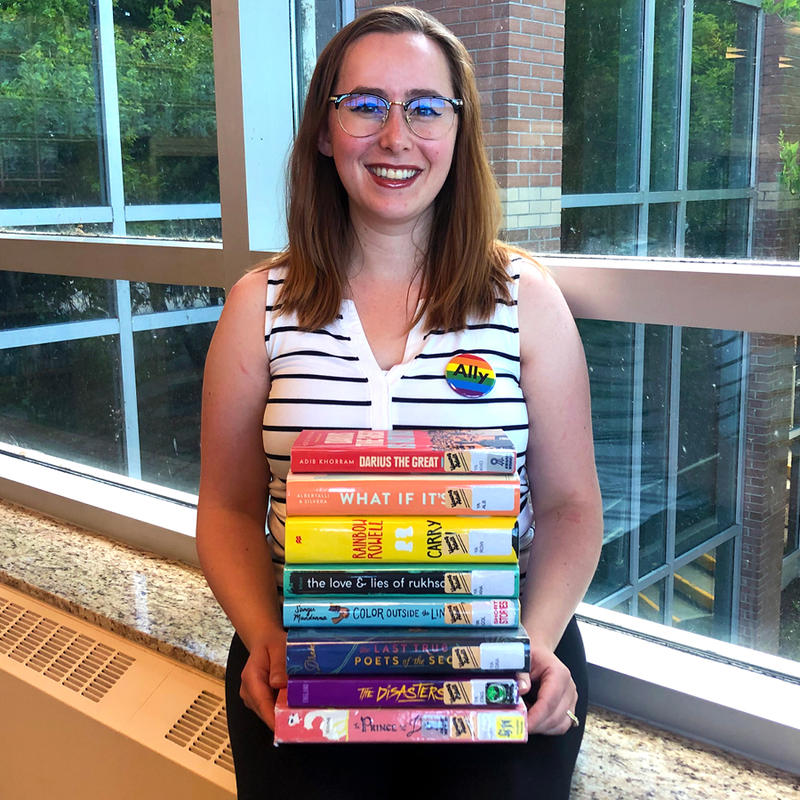“I raise up my voice - not so I can shout but so that those without a voice can be heard.” - Malala Yousafzai
June is both Pride Month and National Indigenous History Month (for Canada); a time where we are called to celebrate and reflect upon the history of queer people and Indigenous peoples in Canada. This June, we have also seen people across the globe take to the streets to protest police brutality and social injustices against people of colour in honor of George Floyd and many other innocent victims of horrific racial crimes. If you’re like me, these events have pushed me to question how I can best support my brothers and sisters in need. What you’re actually asking yourself is how can you be an ally to people who are marginalized in our communities? And during these turbulent times, we need to be an ally more than ever.
What Is An Ally?
“Being an ally doesn’t necessarily mean you fully understand what it feels like to be oppressed. It means you are taking on the struggle as your own. Allies recognize that though they are not a member of the oppressed group(s) they support, they make a concerted effort to better understand the struggle, every single day. Because an ally might have more privilege and recognizes said privilege, they are powerful voices alongside oppressed ones.” (Lamount, n.d.)
Saying you’re an ally is one thing, but actually acting on allyship is another. Here are four important steps to take to become an ally.
(Disclaimer: I am not an expert on allyship; this is a summary of the strategies I have employed for myself based on my own research of allyship. I encourage you to continue your own research from authoritative sources on allyship after reading this blog. A great place to start is to read The Guide to Allyship.)
1. Read

Like with learning about something new, the first step to become an ally is to read and educate yourself on the topic. Push yourself to learn more about the history of the struggles of those who are marginalized, and why people continue to struggle today because of the oppressive systems in place. Seek out true stories, first-hand accounts, and even fictional stories that feature characters who do not have similar lived experiences as you. We highly recommend you start by checking out the following curated book lists:
- Anti-Racist Reading List for Children
- Black Lives Matter (Adults & Young Adults)
- National Indigenous History Month (all ages)
- LGBTQ+ Books for Adults, Young Adults, and Children
- Books featuring Two-Spirit characters
2. Listen
Similar to the first step, you must listen to others’ stories. Listen to your friends, your neighbours, your community, and even strangers who are sharing their stories online. Most importantly, learn how to listen to these stories with grace and without interjecting criticism when it becomes uncomfortable. Ask questions when it is appropriate, but don’t try to victim blame or deny their experiences. Here at MHPL we have recently started a Community Blog initiative to share people’s stories, and we highly recommend checking it out and/or submitting your own story!
3. Stand Up
Marginalized voices are often not heard because they are trapped in the reverberating privileged space that is our society. Therefore, those who have privilege must transfer the benefits of privilege to those who lack it. What does this look like? Support black/Indigenous/queer creators and buisnesses, use your social media platform to share their stories, speak out against racism/homophobia, and stand up for a friend of neighbour who may be experiencing racism/homophobia. Essentially, DO NOT be silent.
4. Be Humble
This may be the most challenging step in becoming an ally. We must acknowledge that the conversation is not about us. We might feel pain, but we never will understand the pain that our brothers and sister are experiencing. This means you shouldn’t show-boat your allyship or take credit for the work done by those who are marginalized. (Lamount, n.d.)
If we want to see change in our society, we must first challenge our biases before going out to change the world. Otherwise, the world is not going to look any different.
Sources Consulted
Lamount, A. (n.d.). The Guide to Allyship. Retrieved June 10, 2020, from https://guidetoallyship.com

 Posted on 10 June 2020 by Stephanie.
Posted on 10 June 2020 by Stephanie.